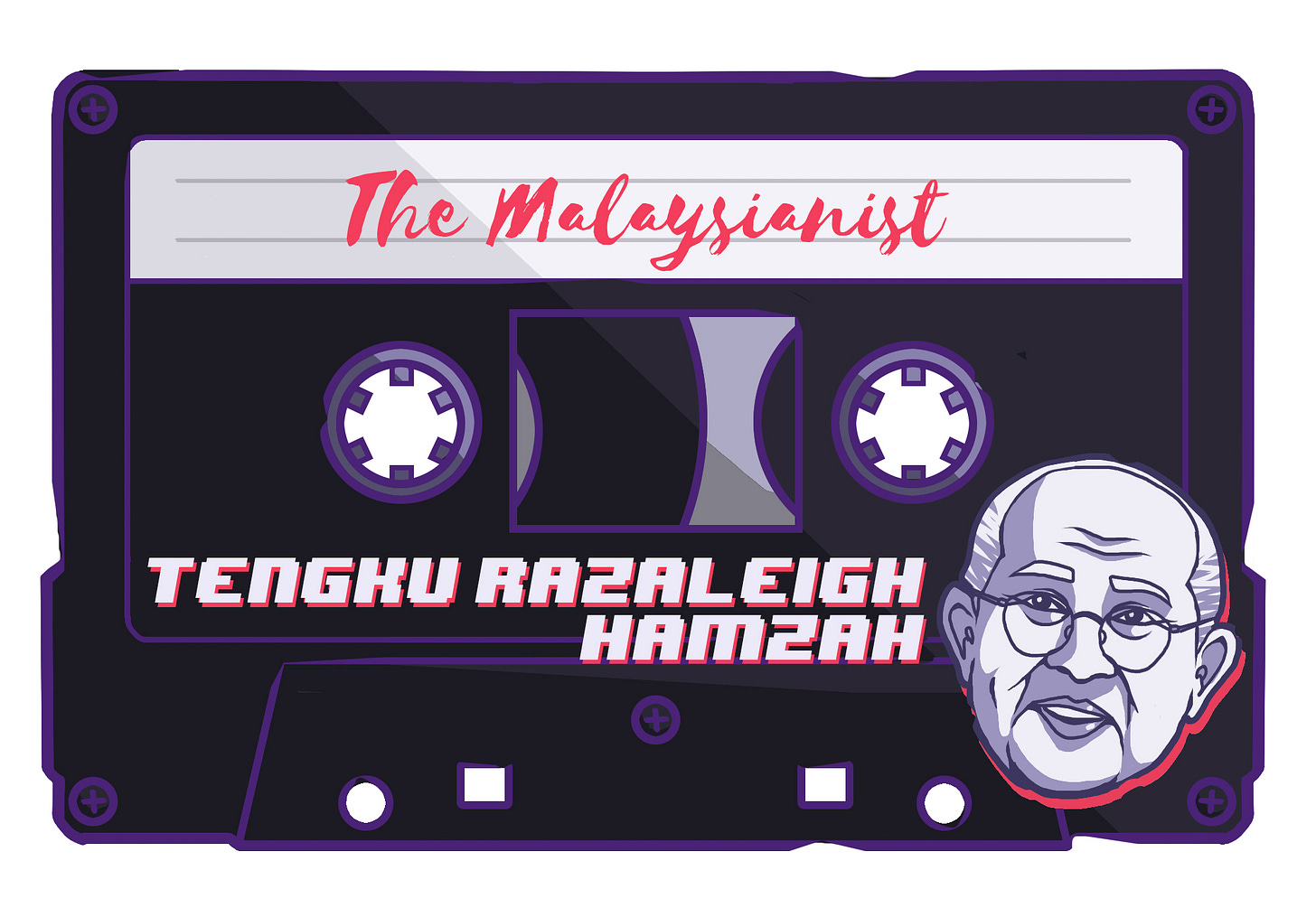Petronas: An origins story
Q&A with the national oil company's first chair Tengku Razaleigh Hamzah.
You’re reading a paid version of The Malaysianist, a newsletter on money and power by writer and journalist Emmanuel Samarathisa.
I run monthly and annual subscriptions. There’s also the atas or founding member tier where you get all the perks of an annual subscription and more, such as an annual or founder’s report and insight into how this little corner of the internet fared throughout the year.
Group subscriptions are on the table, if you’re mulling over purchases for your organisation or for family members.
I also provide customised subscriptions for large organisations or institutions. For extra-large purchases, email: emmanuel@themalaysianist.com.
In his prime, Tengku Razaleigh Hamzah wore many government-linked hats, including Petronas’s first chairman
He was 37 years old when he decided to dip his toes in oil and gas. Initial motivations were two-pronged: to make money for himself and to also raise money for his party Umno.
The ‘70s was an era where Umno waded into business ostensibly to reduce dependence on the donations of Chinese tycoons, with Razaleigh setting up Fleet Holdings to facilitate that transition.
By then, Razaleigh’s political star was shining bright, establishing a decades-long rivalry with Mahathir Mohamad, who would eventually become prime minister.
He was also chairman of Umno-controlled Bank Bumiputera and state agency Pernas, the earliest government vehicle used to further Malaysia’s pro-bumiputera policies through a series of hostile takeovers.
Due to his aristocratic background, Razaleigh was wealthy, being able to forgo salaries for some of the top corporate posts he held, including the Petronas job. But he was also able to amass a grassroots support that made him a prominent individual within Umno.
More importantly, he had a rolodex of corporates, that included the likes of the late tycoon T. Ananda Krishnan, who worked as an oil trader, and Ibnu Sutowo, the former head of Indonesian oil company Pertamina – all of whom would directly or indirectly influence Razaleigh’s idea of running such a business.
At the behest of then prime minister Abdul Razak Hussein, Razaleigh pivoted his personal ambitions to set up Petronas as a national oil company in 1974.
As the firm’s first chairman, Razaleigh was front and centre in the setting up of Petronas as well as the drafting of the Petroleum Development Act 1974 (PDA), which vests all the country’s oil and gas resources in the national oil firm.
When Abdul Razak appointed Razaleigh as Petronas chairman, the latter’s role was akin to that of a cabinet member – the only time that role had executive powers.
But Razaleigh’s hardline, nationalistic stance also reportedly irked foreign oil companies. Some of these firms reportedly lobbied Abdul Razak’s successor, Hussein Onn, to remove Razaleigh as Petronas chairman. But they failed to unseat him.
After a two-year stint, Razaleigh took up the finance ministry mantle in Hussein’s Cabinet. “They wanted me to run Petronas. They also wanted me to run the Ministry of Finance. I can’t be doing too many things at one go,” he says.
I met Razaleigh, 87, in October last year to get a start on Petronas. The national oil company is in a quandary, especially over its role as the sole manager and owner of Malaysia’s oil and gas resources.
This came on the back of a more vocal Sarawak, which is asserting its sovereignty over its natural resources.
My interview with Razaleigh explores some of the behind-the-scenes developments during the early days of Petronas, from Malaysia’s approach to production-sharing agreements, the proponents for the setting up of the national oil company as well as the pushback and the missed opportunity of kickstarting a sovereign wealth fund.
This is Part 1 in a 2-part series on Petronas. Our conversation, edited for brevity, below:

